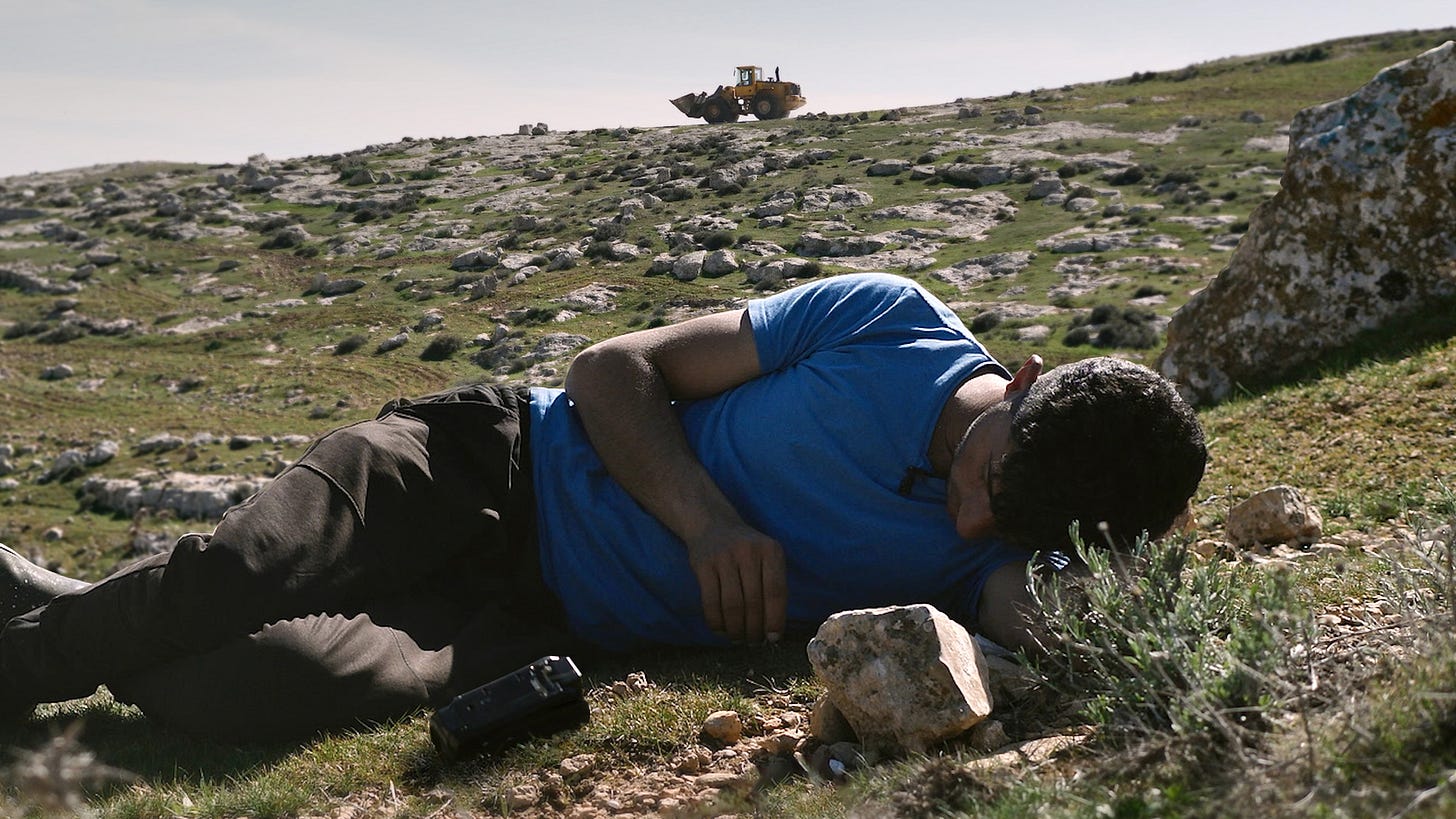The most high-profile documentary about the Israel’s illegal occupation of Palestine since the October 7th attacks, No Other Land is a bracing first-person account of the IDF’s brutal and systematic destruction of Palestinian livelihoods. Basel Adra, one of the directors of the film, has spent his entire life fighting to stay in his village of Masafer Yatta. Although the village has been identified on maps dating back to the 19th century, the Israeli government has declared the land a military training zone. In the ensuing decades, the IDF has slowly demolished the village’s “illegal constructions”, pouring cement down their water supply, tearing down their playgrounds, and bulldozing their houses.
Spanning from around 2019 to just after the October 7th attacks (when filming became too dangerous to continue), No Other Land is a powerful look into Israel’s apartheid state and a moving, if sobering treatise on the state of activism in the age of the internet. One of the structuring forces of the film is the participation of Yuval Abraham, an anti-Zionist Israeli journalist who is something of a Western audience proxy. Joining in Masafer Yatta’s protests, and publishing articles about the IDF’s demolitions, he becomes an ally to the Palestinian cause. What No Other Land plainly illustrates is how Abraham’s position as an Israeli colors his perspective on the conflict, and in turn, affects the budding friendship between himself and the villagers. The residents of Masafer Yatta aren’t allowed to drive, let alone leave their village, so when Abraham goes home and showers every night while the homeless Palestinians sleep outside, the contrast in mobility plainly colors Abraham’s interactions with the villagers, who mutter that “of course he’ll go home”.
What Abraham may never fully understand is the lifelong struggle for dignity that has overwhelmed the lives of the residents in Masafer Yatta. At one point, Adra points out that Abraham wants to solve the occupation in a few days and return home. Adra might as well be talking to the film’s intended audience. With decades worth of documentary footage and personal anecdotes, No Other Land effectively conveys the grueling effort to not just protest the demolitions on the ground, but also document it. When Adra’s father is arrested near the end of the film, we understand this is an exhausting, regular occurrence because we’ve seen footage of arrests tracing back to Adra’s childhood.
No Other Land is impressively clear-eyed about value of political journalism. Adra’s videos and Abraham’s articles generate little response, and at times, if feels like they’re just waiting for something to go viral. No Other Land is caught between the understanding that Adra and Abraham’s work is an important document of Palestinian existence whose tangible impact might seem minuscule, but if they’re lucky, could be life-changing. The power of international intervention is addressed in an anecdote about Masafer Yatta’s school. In Adra’s childhood, the villagers banded together to construct a school. Deemed an illegal construction, the effort was heavily countered by the IDF who repeatedly tried to demolish the building. The villagers built the school with women and children working during the day and the men building through the night. The turning point in the project came as a result of a visit from Tony Blair, the former Prime Minister of England, who flew to Masafer Yatta to meet the villagers and see the school. As Adra notes, after Blair’s visit, the IDF ended all attempts to demolish the school.
If the past year has demonstrated anything, it’s that even a smaller intervention like this is unlikely to occur in the short term. It’s been upsetting to see the United States continually veto UN motions for a ceasefire, and Palestinian cries for help increasingly congregated on a social platform swarming with ads for the IDF. The frustration even extends to the film itself. No Other Land has been winning major awards at festivals around the globe, but the film is still without a US distributor for transparently political reasons. No Other Land is a response to the feelings of helplessness that have intensified in the Western world since the beginning of the Israel’s genocidal campaign. This struggle has been ongoing for generations, and resistance is a lifelong project.
No Other Land is self-distributed.




